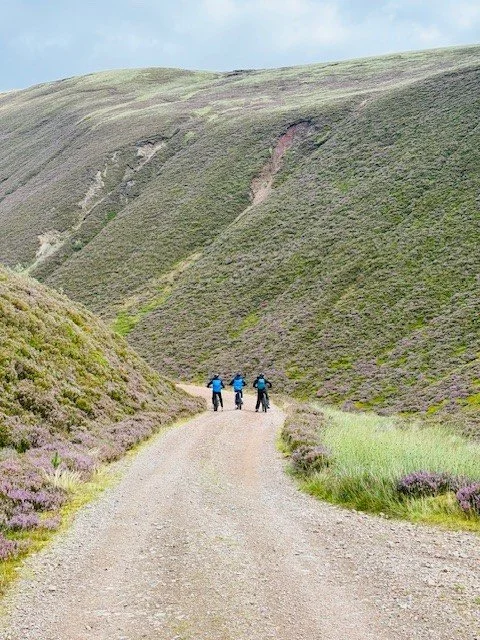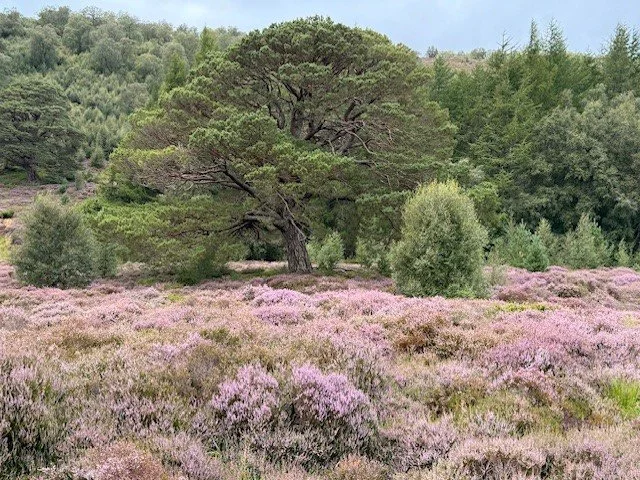Climbing Hope
This summer we returned to the Scottish Highlands. I don’t know what it is about Scotland, particularly the north. It captivates me in a way that other places don’t. I can’t really explain what it is. It is rugged and wild and constantly changing. There are not very many humans (the far north is the least populated part of Europe) and it feels like nature at its most raw.
You don’t go to Scotland for the weather, but that’s part of its appeal. When you live in the sun all year round getting four seasons in one day feels invigorating. You layer up, put on your kit and out you go. The biggest win this summer was waterproof trousers – everyone has a waterproof jacket but the trousers too – that’s a winning combination. In Scotland you are not looking to win any fashion competitions.
We spent time in two areas of Scotland this summer – Sutherland on the far north coast and the Cairngorn mountains, just south of Inverness. Whilst on the North coast we climbed a Munro (Scottish for a mountain over 3,000 feet); Ben Hope. There are 282 Munros in Scotland. This was our second. We have a fair way to go before we have “bagged them all”.
Ben Hope is a special one. It’s the most northerly Munro. On my reckoning it is one of the most spectacular places on earth. Hope is located in an estate owned by Danish billionaires, Anna and Anders Povlsen.
The Polvsens are the largest landowner in the UK. They owns 300,000 aces of the Scottish Highlands. They fell in love with the Highlands some years ago (I challenge you to go and not fall in love) and developed a deep connection with the magnificent landscape. They have become conservationists and restorationists. Their foundation has a 200 year vision of ecological rehabilitation in the Scottish Highlands. The Povlsen’s have restored and created some of the most magical places I have ever visited.
Here is how they describe their vision:
We wish to restore our parts of the Highlands to their former magnificent natural state and repair the harm that man has inflicted on them. Not just the land itself but also both those other parts of Scotland’s rich heritage of which we are now custodians. There are many vulnerable properties across all of the holdings that we have the wonderful and privileged opportunity to rehabilitate and restore to life; there are also archeologically important structures that we have the responsibility to protect.
When you climb a mountain you get time to think. Climbing Hope was a chance to totally disconnect. There was no visible evidence of human civilisation at any point during our climb. The view from the top was devoid of towns. It was mountains, lakes, rivers, moorland, peatland and ocean for as far as the eye could see.
View from the top
Coming back down
This was an area touched by the Povlsen’s vision. An area where you could see the natural order being returned. Monoculture being replaced by diverse species. The natural grasses and heather growing back where the deer populations (which have become out of control) are being controlled. You can see nature re-blossoming. You can literally smell it. We saw it in the estate around Ben Hope and also in their Cairngorms estate, Glenfeshie (we stayed there and did a 40km cycle ride around the estate).
Whilst climbing Ben Hope, whilst putting one foot in front of the other, I thought a lot about hope, about the concept of Hope. About how easy it is to lose hope in a world that seems so desperate.
And what happens when we lose hope? We end up in despair.
If you have hope, you are hopeful. Hope is described as both an emotion and a way of thinking. I wondered how hope is different from optimism. I describe myself as a realistic optimist. When you understand history and the world you realise that, despite the headlines, the world is getting better for most people most of the time. I talk often about the importance of optimism as an investor. As soon as we lose the faith that what has happened in the past will continue into the future, we are on a slippery slope.
But is being optimistic the same as being hopeful?
Professor Brian Lawlor says that hope is not optimism, which is a belief that everything will work out. Hope is much more active, a feeling and a mindset that you have to work at in order to achieve your goals, despite trying and extenuating circumstances. Hope can sustain people at very difficult times in their lives; death, illness.
It makes me thinks of the Stockdale Paradox, named after Admiral James Stockdale, the highest-ranking US officer in a Vietnam War prisoner-of-war camp. I first came across this concept whilst listening to a podcast with Jim Collins, author of Good To Great.
Stockdale was tortured over 20 times during his eight-year imprisonment. He lived out those years without any prisoner’s rights, no set release date and no certainty as to whether he would survive to see his family again.
When asked how he dealt with it, he said, “I never lost faith in the end of the story. I never doubted not only that I would get out, but also that I would prevail in the end and turn the experience into the defining event of my life, which in retrospect, I would not trade.”
Who didn’t make it out, Stockdale was once asked?
“Oh, that’s easy,” he said. “The optimists.”
“The optimists were the ones who said, ‘we’re going to be out by Christmas.’ And Christmas would come, and Christmas would go. Then they’d say, ‘We’re going to be out by Easter’. And Easter would come, and Easter would go. And the thanksgiving and then it would be Christmas again. And they died of a broken heart”.
Stockdale concluded, “This is a very important lesson. You must never confuse faith that you will prevail in the end – which you can never afford to lose – with the discipline to confront the most brutal facts of your current reality, whatever they might be.”
You can be hopeful and also accept that things are really hard. We have to do that every time we hit a road block in the markets. We have to say “ok, this is hard and maybe scary, but it will pass as it always does”.
There are many reasons to lose hope today – there is war and climate change and geopolitical instability and division. It can feel desperate at times.
But then you come along people like the Povlsens. A family that have gone through unimaginable tragedy (they lost three of their children in the Sri Lankan hotel bombing in 2019) but have dedicated their wealth to the service of nature and the people that depend upon it. And I have seen the results of it with my own eyes.
It gives you so much hope in humans and our ability to restore and repair.
Don’t lose hope.
Poem by Donna Ashworth
Georgie
georgie@libertywealth.ky







